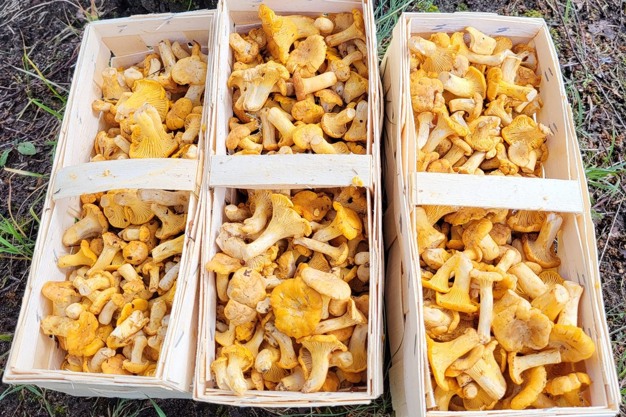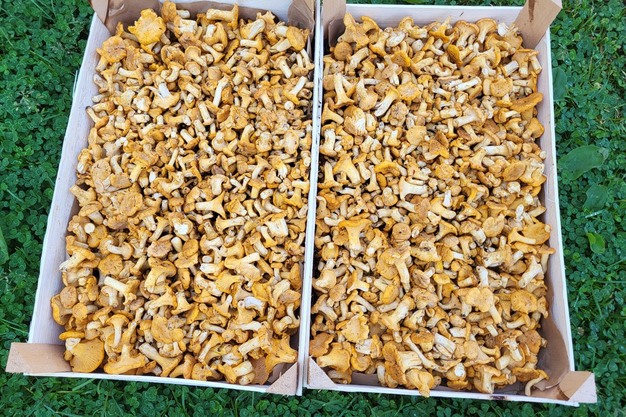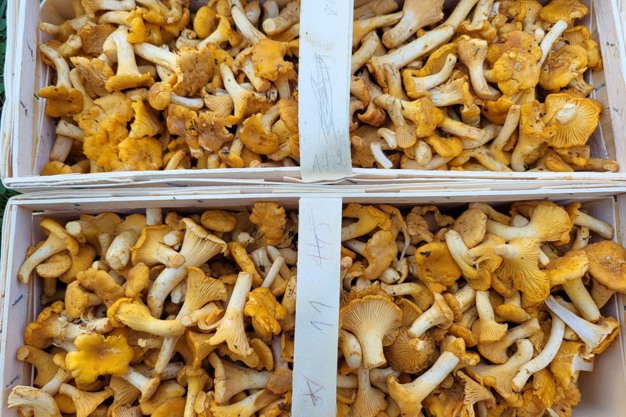There are more mushrooms than people to be found in the small Lithuanian town of Varėna. Lithuanian chanterelles are gaining popularity in Europe and especially Germany. Marius Juškevičius, CEO of JSC M&KO, exporters of mushrooms from the Baltic country, says: "We are happy that our Lithuanian mushrooms are very well regarded in Europe and are the best sellers. We feel great interest, we sometimes joke that Varėna is the capital of mushrooms in Europe. At the moment, there are no other mushrooms in Lithuania."

He says judging on the amount of contracts being signed with European importers, their Lithuanian mushrooms is seeing growing demand. "At the moment, we have signed 10 counter-contracts with Germany for 500 tons of Lithuanian chanterelles. The weather was favourable, there was rain, we started the season very early, it has been like this last year June too. For our local Lithuanian restaurants, we transported mushrooms from Germany until June. We mostly sell mushrooms to them in Lithuania, other mushrooms go to the markets of big cities."
Juškevičius says they started buying the chanterelles mushrooms since June in 2003. "In Varėna town there are eight mushroom companies. There are only about 18,000 people in the Varėna district, but we have a deep tradition of mushroom picking. It is the ecologically cleanest region in Lithuania with the Dzūkija National /PAN Park, which is one of 13 PAN parks in Europe." He says this makes the region stand out for mushroom growing.

"We started buying the first mushrooms, chanterelles, from purchase points for 10 Euro/kg. We were the first to sell in the Lithuanian market because the quantities were very small, between 100-300 kg. Currently, we buy mushrooms from 500 kg to 1 ton per day. We are currently sorting for the German market. Our Lithuanian mushrooms will appear soon on the Großmarkt Berlin. We have signed a lot of contracts, but at the moment there are not so many mushrooms, we are currently selling them for 12-13 Euro depending on the sorting method, packaging and transport costs. Our most popular packaging is wooden baskets, 1 kg and 3 kg boxes. We buy the packaging from Ukraine. Transport will be a little cheaper."
Juškevičius notes a change in European consumer demand for mushrooms. "We have noticed that customers want smaller quantities, they want fresher mushrooms and that we would deliver more often. Our priority is our old partners with whom we have been working for over 10 years. About 50% of our mushrooms are exported to Germany, then to Italy, France, Spain, Sweden, Finland, Poland and other countries."

The main concern for Juškevičius is that the good weather holds so that they would be able to have enough mushrooms to send to their clients. "Let's hope the weather will be good, and there will be enough mushrooms to fulfil the needs of our customers. The season will start in full as we buy from three tons per day, there are not that many mushrooms at the moment, so they are still expensive. Currently, the mushrooms are small, up to 3 cm, we sell it unsorted. During the summer, we sort the mushrooms between 3 cm and +3 cm," concludes Juškevičius.
For more information:
Marius Juškevičius
JSC M&KO
[email protected]










